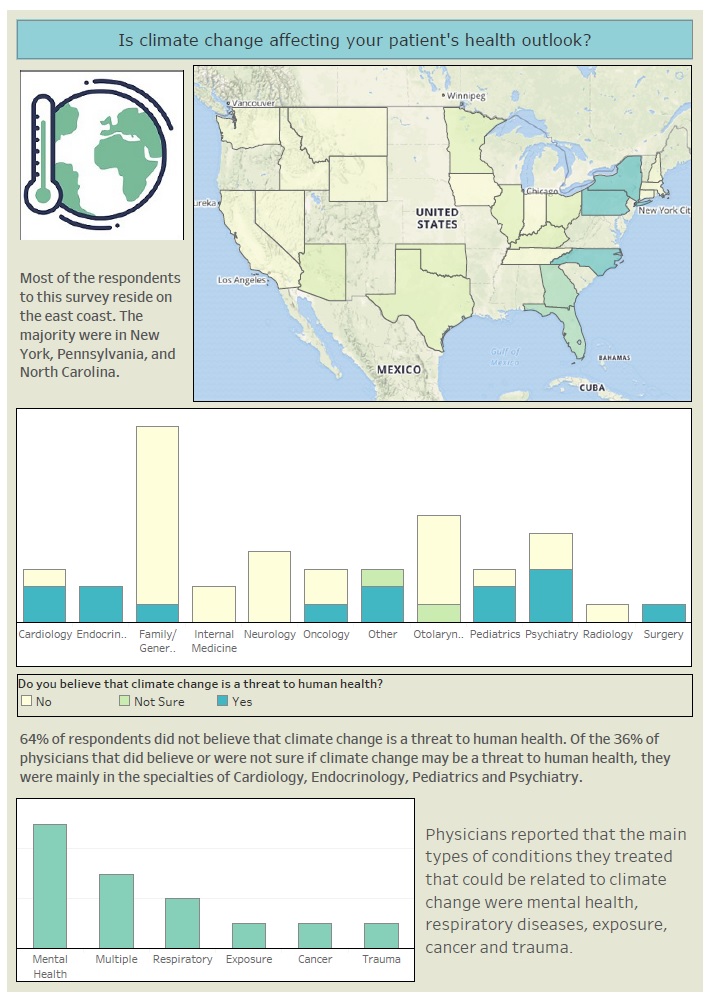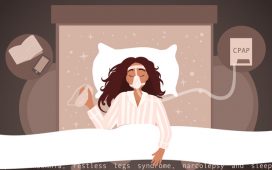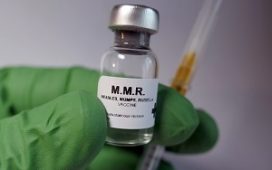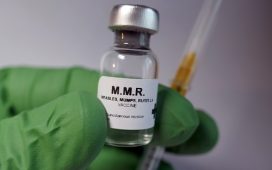
64% of the physicians surveyed do not believe that climate change is a significant threat to human health in the U.S.
In answer to the question, If you see patients with health conditions related to climate change – what types of conditions do you treat? – here are some responses:
– A psychiatrist from Washington state says, “Primarily mood disorders.”
– A psychiatrist from Kentucky reports, “In this part of the country it has gotten much colder so we are seeing more URTI’s, asthma & hypothermia.”
– A Wyoming family practitioner says, “None, because there are too many real diseases to treat.”
– A Georgia ENT says, “Regular everyday problems and congenital issues. None of these are related to ‘climate change.'”
– Two physicians from Pennsylvania report having treated COPD and depression related to climate change.
– A surgeon says, “Not only increased weather related traumas but difficulty returning patients to home if no electricity/hospitals (have many patients from Puerto Rico).”
– A family practitioner from Illinois says, “I have patients who have health problems that would be susceptible to significant climate change, but there has been none.”
– Another family practitioner from Ohio states, “Climate change is real, but the degree of effect is currently not accurately measurable in terms of directly permanent health risks beyond current yearly variables – gross generalizations are not effective tools in the day-to-day treatment of patients, and nobody really has an accurate prediction of future risks based on conflicting climate change data.”
– A Minnesota psychiatrists says, “A wide variety, but climate change does not influence their clinical course for good or ill.”
– Two physicians from North Carolina state they’ve treated allergies, asthma, GI disorders, SARS, seasonal affective disorder, and heat illness related to climate change.







